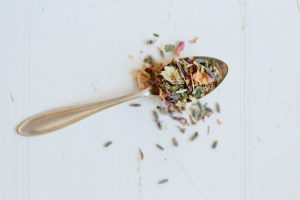The Naturopathic Co.

You're using an outdated browser. Please upgrade your browser to improve your experience.
Nutrition has never been so important. Our nutritional status can have a profound effect on our immunity, by leading to susceptibility to viral infection, affecting the severity of the virus, as well as supporting the virus itself.
Research shows that nutritional deficiencies cause negative changes in immune function thereby opening the door to infection. The decrease in our immune function leads to a rise in free radicals, which allows the rapid replication of viruses.
Vitamin E is a potent antioxidant which counter attacks free radicals caused by oxidative damage. Vitamin E works synergistically with selenium in keeping oxidation at bay, and any deficiency in these nutrients will increase oxidative stress and cause an increase in viral pathology.
Studies have shown deficiencies in selenium have been linked to an increased susceptibility to immune suppression. One study showed a deficiency in selenium allowed for a pre-existing virus to mutate (Beck 1996).
Zinc deficiency results in a compromised immune system. Studies of zinc supplementation have demonstrated decreased clinical symptoms with rhinovirus, with a clear reduction in the duration of symptoms. Zinc is involved in diverse roles that include immune cell activation and direct antiviral activity, and is critical in generating both innate and adaptive immune responses.
Vitamin C is an immune supporting nutrient which cannot be synthesised by humans. Research shows that an insufficiency in vitamin C impacts multiple organs, resulting in impaired immunity and a higher susceptibility to infections. One study showed that vitamin C has an antiviral immune response in the initial stages of an influenza infection, however supplementation of vitamin C after infection may not have any effect. Thereby maintaining sufficient levels of vitamin C is an effective means of prevention at the initial stage of a viral infection (Carr 2017).
Vitamin A is well documented as having anti-viral properties and its ability to modulate immune function. One study showed the relationship between the measles virus and vitamin A deficiency – the investigation showing that a deficiency in vitamin A often accompanied the development of severe measles. The severity of other viral infections is also downgraded by adequate levels of vitamin A, with significant reduction in symptoms after supplementation.
Licorice (Glycyrrhiza glabra) has shown to be beneficial in supporting the immune system to combat viral infections. Licorice is an effective antiviral compound to numerous viruses by weakening viral activity, inhibiting virus gene expression and replication, reducing adhesion force and stress, and enhancing host cell activity.
Panax (Korean) Ginseng contains various pharmacologically active substances, which have been shown to be effective against many viral infections including influenza, rhinovirus, herpes, hepatitis, and rotavirus. It actively boosts immunity, but also has direct antiviral effects by inhibiting replication.
Make an appointment with your naturopath, who will prepare tailored immune support, and if needed, prescribe practitioner-only therapeutic supplements and herbal medicines direct to your door.
1 x 30 min Immune Boost consultation (Individual). Learn how to boost your immune system, antiviral compounds, and key nutrients to help support strong immune health.
Yvette is a qualified Melbourne-based Naturopath and Nutritionist, MINDD Practitioner, member of the Naturopaths and Herbalists Association of Australia, and Complementary Medicine Association. Yvette specialises in the treatment of conditions commonly affecting women and children, with a key interest in children’s digestive and neurological conditions, as well as women’s hormonal concerns, digestive issues, fatigue, anxiety, and skin concerns. Yvette consults in South Yarra, Melbourne, as well as Australia-wide via skype/zoom/phone.
References
Beck, M. A. (1996). The role of nutrition in viral disease. The Journal of Nutritional Biochemistry, 7(12), 683–690. doi:10.1016/s0955-2863(96)00132-5 5
Read, S. A., Obeid, S., Ahlenstiel, C., & Ahlenstiel, G. (2019). The Role of Zinc in Antiviral Immunity. Advances in Nutrition. doi:10.1093/advances/nmz013
Nutrients and Herbs Supporting Immune Health InterClinical Practitioner eNews March 2020 Issue 103
Bayan, L., Koulivand, P. H., Gorji, A. (2013). Garlic: a review of potential therapeutic effects. Avicenna Journal of Phytomedicine, 4(1): 1-14.
Read, S. A., Obeid, S., Ahlenstiel, C., & Ahlenstiel, G. (2019). The Role of Zinc in Antiviral Immunity. Advances in Nutrition. doi:10.1093/advances/nmz013 6.
Carr, A., & Maggini, S. (2017). Vitamin C and Immune Function. Nutrients, 9(11), 1211. doi:10.3390/nu9111211 7.
Pringle, C (2016). Overview of Viral Infections. Retrieved 17th November 2017 from http://www.merckmanuals.com/home/infections/viral-infections/overview-of-viral-infections
Racaniello, V (2009). Acute viral infections. Retrieved 17th November 2017 from http://www.virology.ws/2009/02/13/acute-viral-infections/
The Naturopathic Co. Melbourne Naturopath 2020
Comments are closed.